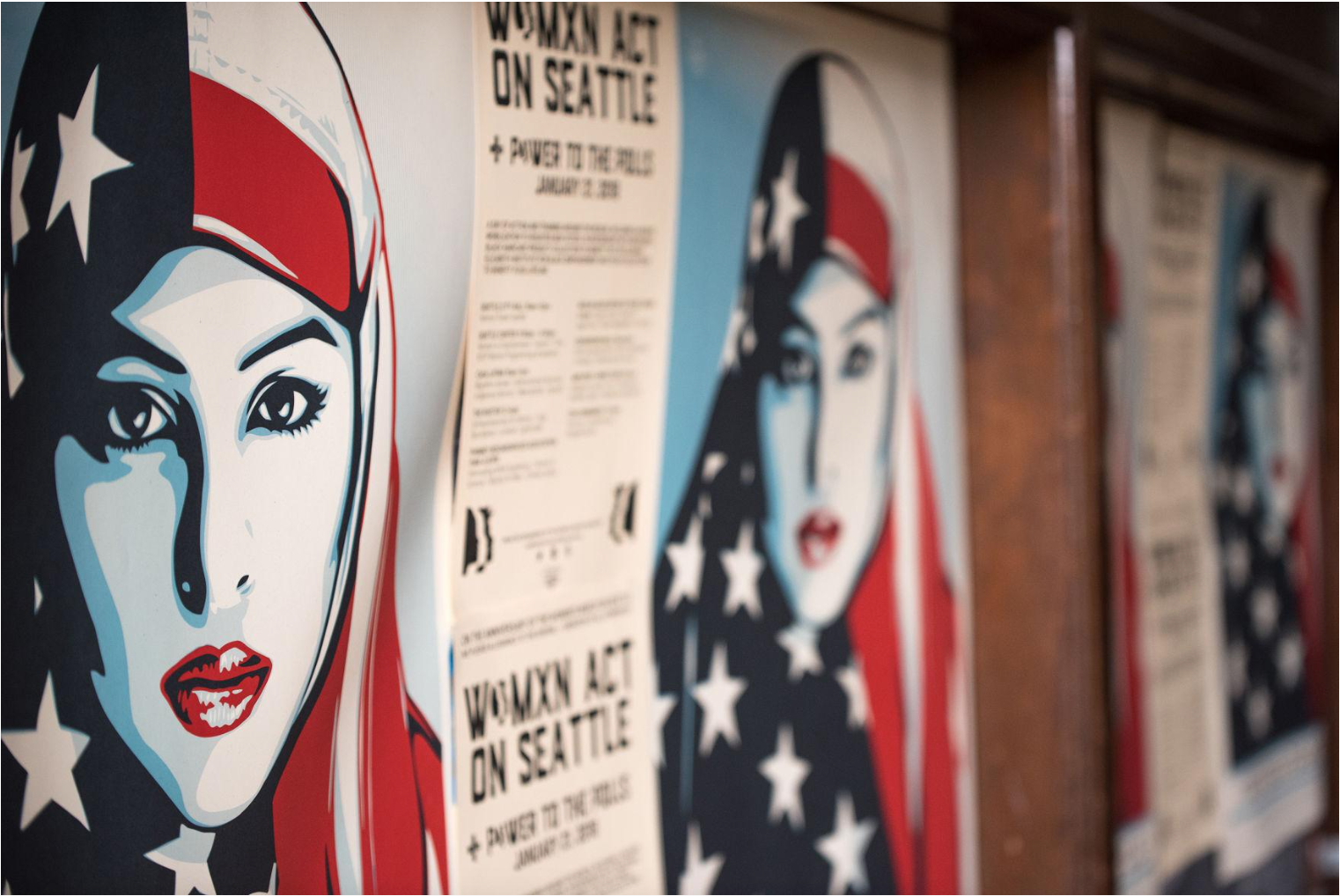
In conversation with change
Gray, late-morning light streamed in through the windows as people filtered into the classroom. A bench from the hall was brought in as, folding chair by folding chair, the room began to fill up. Each person faced the blackboard, on which the words “Between Americans” were projected.
As I sat down in a chair in the back row, I wasn’t quite sure what to expect. This talk was a part of Womxn Act on Seattle, a day of events organized by the same group behind Saturday’s Seattle Womxn’s March. It was called “Between Americans: The politics of loneliness.” I chose this event because I thought there was something thought-provokingly truthful about the title, but what exactly did it mean? And how did it relate to womxn?
At a glance, I felt a little out of place. There were few people there who looked about my age, though I quickly realized none of that mattered.
The people there were curious. They were eager: they wanted to learn and create change. They were the kind of people who said “bless you” when a stranger sneezed (I can personally vouch for this). They were there because they cared. I think most significantly, however, they were there because they, like me, felt a sort of loneliness; a sort of loneliness they hoped would be explained in this talk.
Standing at the front of the room was speaker Boting Zhang, the researcher and pioneer of the project Between Americans: The Politics of Loneliness. In her research, she studied 24 people, across the political divide, and put them in conversation with one another. She created an online group where they would answer political questions that Zhang asked, but beyond that initial response, if they wanted to speak to each other further — agree, refute, bolster, argue — they would have to pick up the phone and call each other.
It’s no secret that social media has changed the way we interact. We’re more connected, yet more distant; more likely to overshare, but probably not about much of substance. We see the highlight reel but not real life, and with the 2016 presidential election, it became something else.
Since then, social media has served as a massive, figurative wall for the American people. We throw out words that we then either “like,” comment on in a fury of disagreement, or ignore all together.
This sort of culture, Zhang explained, creates a feeling that you have to belong to “a side,” and if you aren’t sure of where exactly you belong, you are left feeling isolated and in the dust. So as party divides widen, those in the middle fall between the cracks, leaving the world with warring posts and comments that, on the surface, have almost nothing in common.
Then, Zhang explained something that really hit me: A great majority of what really connects us as human beings occurs in private. Our insecurities, intellectual musings, internal moral struggles, and the editing and countless readings and re-readings of our social media posts all occur within the privacy of our own minds. Yet they are things that everybody does, creating a stress that everybody feels.
So what would happen if we were to have these conversations face to face? Would we find more humanity in the “other side” and recognize the nuance in opposing ideas? Would we be more reluctant to denounce them as a single type of person? Most importantly, would we be more understanding if we understood the reasons behind why they held those beliefs?
Assuredly, I’m not suggesting to go befriend your local Nazi, but for the average, reasonably-minded American, starting this sort of open dialogue across ideological difference could yield great results for us as people and as a society.
This is why the #MeToo and #TimesUp movements are so important. They put a face to the stories we hear, a name to the claims we see. Seeing how sexist mentalities impact people you know and people you see, even if never in person, adds a whole new layer of reality to the issue. Marches, like the ones across the country this past Saturday, not only give a face to the issue, but show the magnitude of it. Tens of thousands of people showed up at the Womxn’s March in Seattle, along with over 200,000 in New York and 2,000 in Bellingham alone, plus thousands upon thousands more in cities across the country.
#MeToo and #TimesUp are so monumental because finally, after years and years, womxn don’t feel so alone. Finally, they feel heard. These movements show the power of going face-to-face and the impact of looking for humanity beyond the screen, allowing for us to truly be seen not just as Facebook posts, but as the real people behind them.
Post a comment